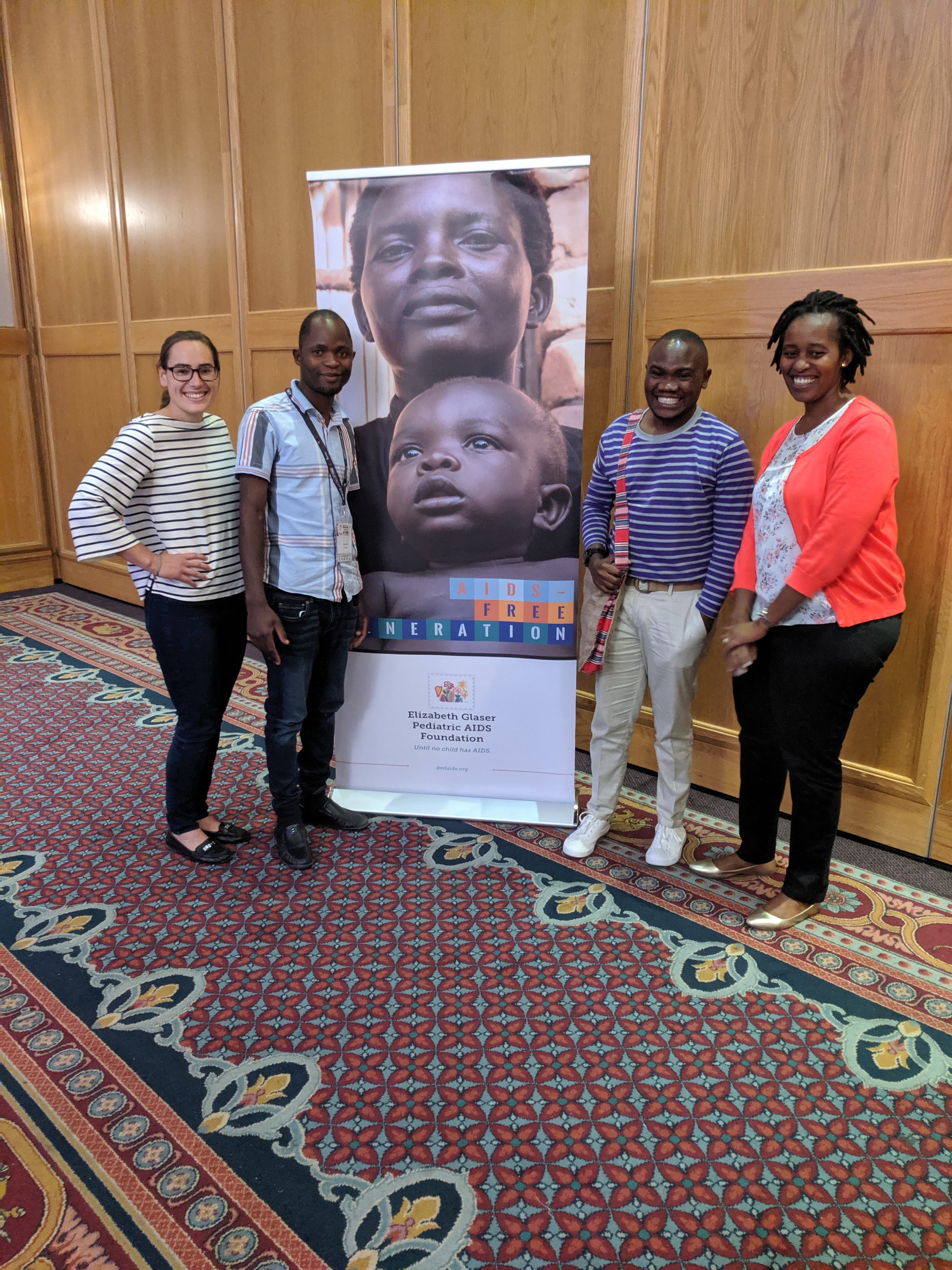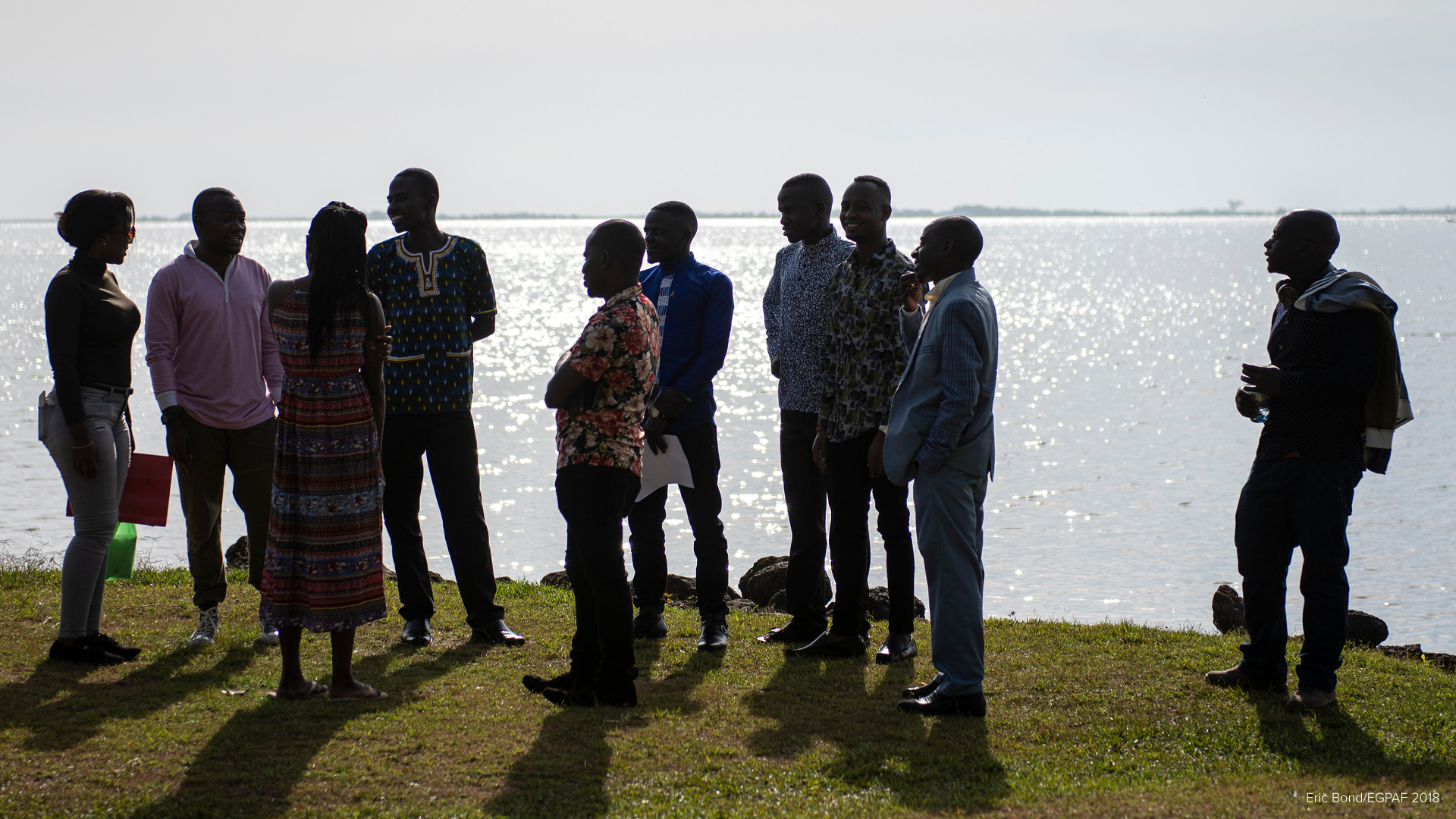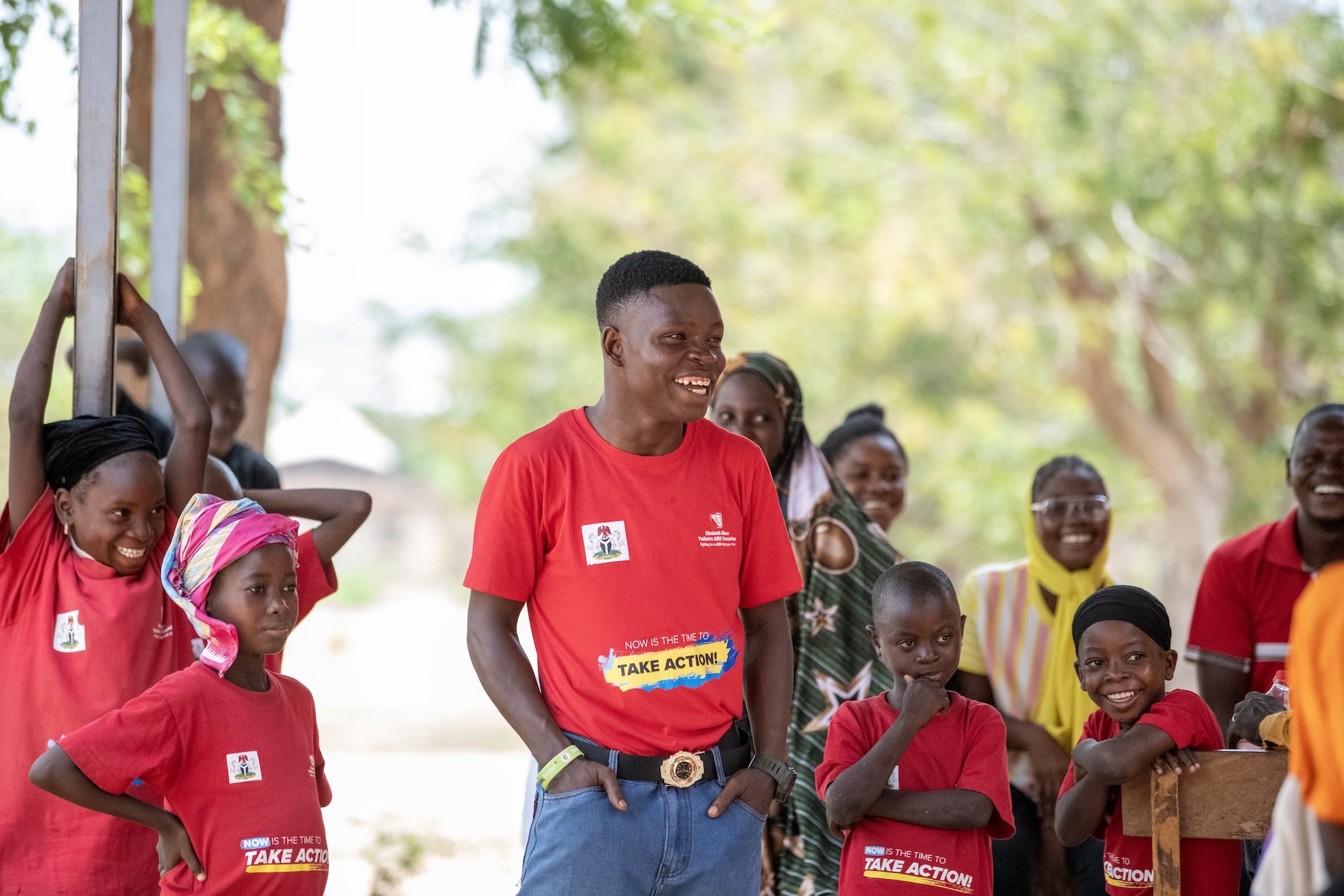Recently, Team EGPAF joined REPSSI’s Psychosocial Support Forum in Windhoek, Namibia to discuss why psychosocial support is a critical component of HIV care, especially for caregivers, children, and adolescents living with HIV, and pregnant women.
EGPAF Ambassador Brian Ahimbisibwe opened the conference by interviewing First Lady of Namibia Madame Monica Geingos, whose office has spearheaded the country’s youth-driven “Be Free Movement” that seeks to address challenges holding young people back from reaching their full potential. Watch that interview here:
Psychosocial support services play a key role in HIV care by improving client mental health, increasing retention in care, and creating social cohesion and connections among stigmatized and vulnerable populations. This care is provided by a range of providers, including counselors, nurses, social workers, psychologists, community health workers, peers, and mentor mothers. Through various EGPAF programs, we provide psychosocial support services to over 250,000 clients each year.
After an educational and inspiring week, we spoke with Brian, Vincent, and Gilbert about their experience at REPSSI this year:
What was your favorite part of attending REPSSI?
Brian: My favorite part of attending REPSSI was seeing young people at the forefront of deliberations.
Vincent: I really valued my participation in presentations concerning children policy making and managing psychosocial support for adolescents and youths. It was so interesting and encouraging to discuss real scenarios concerning adolescents living with HIV because they were tackled tactfully.
Why do you think psychosocial support is such an important issue to discuss?
Vincent: Psychosocial support is so important to discuss because it has a direct impact on drug adherence and lifelong therapy to achieve viral suppression. People who are directly involved with youths and adolescents need to have a vast knowledge about managing psychosocial support in order to build our children and youths’ future by creating a safe psychosocial environment.
What did you learn this week?
Brian: Human-centered design is the future of psychosocial support. We learned how to bring the recipient of psychosocial support programs to the table. Most programs are designed without the input of youth, which compromises their success. Seeing the First Lady of Namibia Monica Geingos be so down to earth with the young people with whom her #BeFree movement is intended for was a game-changer.
How has access to psychosocial support affected your life and/or your community?
Brian: Personally, I’ve grown to beat the “odds of life” because of psychosocial support. If not for my access to psychosocial support, I would not have been able to break all of the societal barriers and live an extremely meaningful life. This has ignited my efforts to reach out to communities around me that are most in need.
Vincent: Access to psychosocial support has made my life to be simple because most of the issues I have been struggling with at work or in the community were addressed by getting the answers I needed.
What surprised you most at REPSSI?
Brian: Seeing First Lady of Namibia Monica Geingos’ passion and enthusiasm for young people’s needs, how down to earth she is, and how easily she interacts with young people.
Gilbert: I was surprised to learn how climate change affects access to psychosocial support. Due to continuous rainfall and floods, infrastructure can be damaged and it affects access to medication when people move from one place to another.
How did your time at REPSSI inspire you to continue your work in your community?
Gilbert: Attending REPSSI helped me have courage. It helped me to stand up and advocate for my fellow young people living with HIV so that we can live positively.
Vincent: My time at REPSSI has inspired me very much because I have seen how others are dedicating themselves to offer psychosocial support to children, adolescents and youths regardless of what resources they have.
EGPAF’s Committee of African Youth Advisors (CAYA) has proved that young people can change the lives of children, adolescents, and youth. Being one of the pioneers for the program and being chosen to represent EGPAF was so inspiring. Now, I will continue working hard in my community to help children and adolescents living with HIV to reach their goals.







